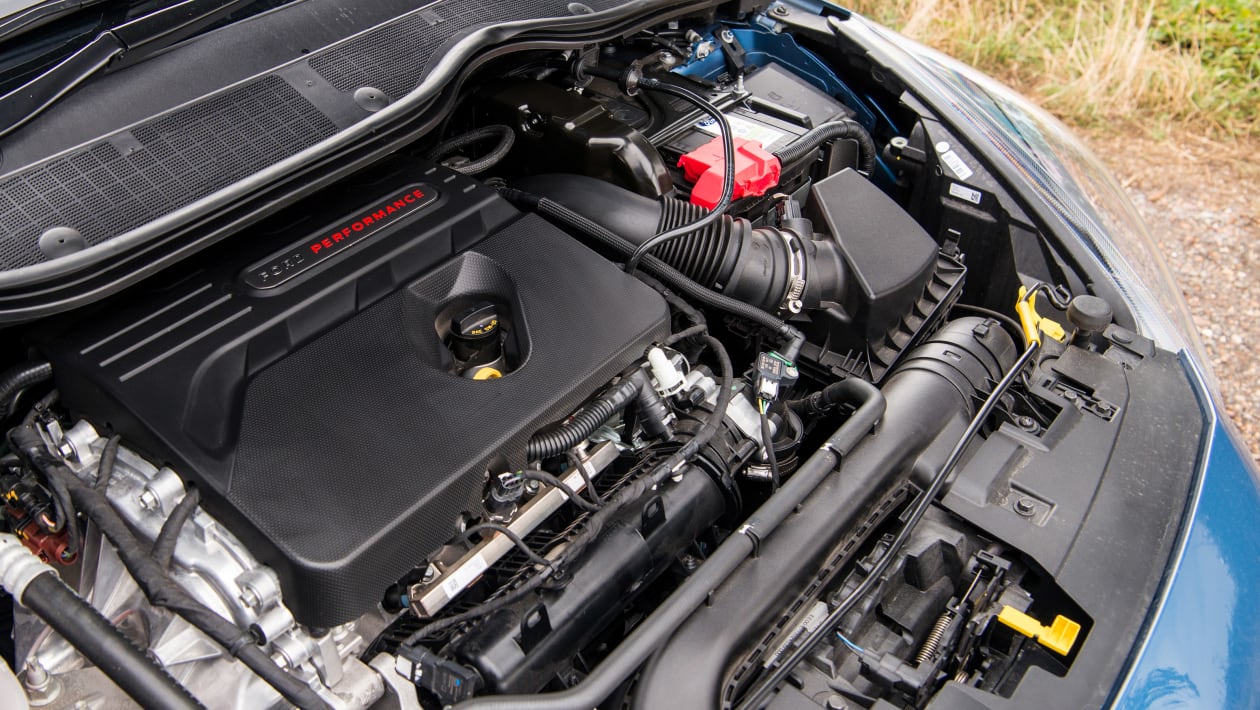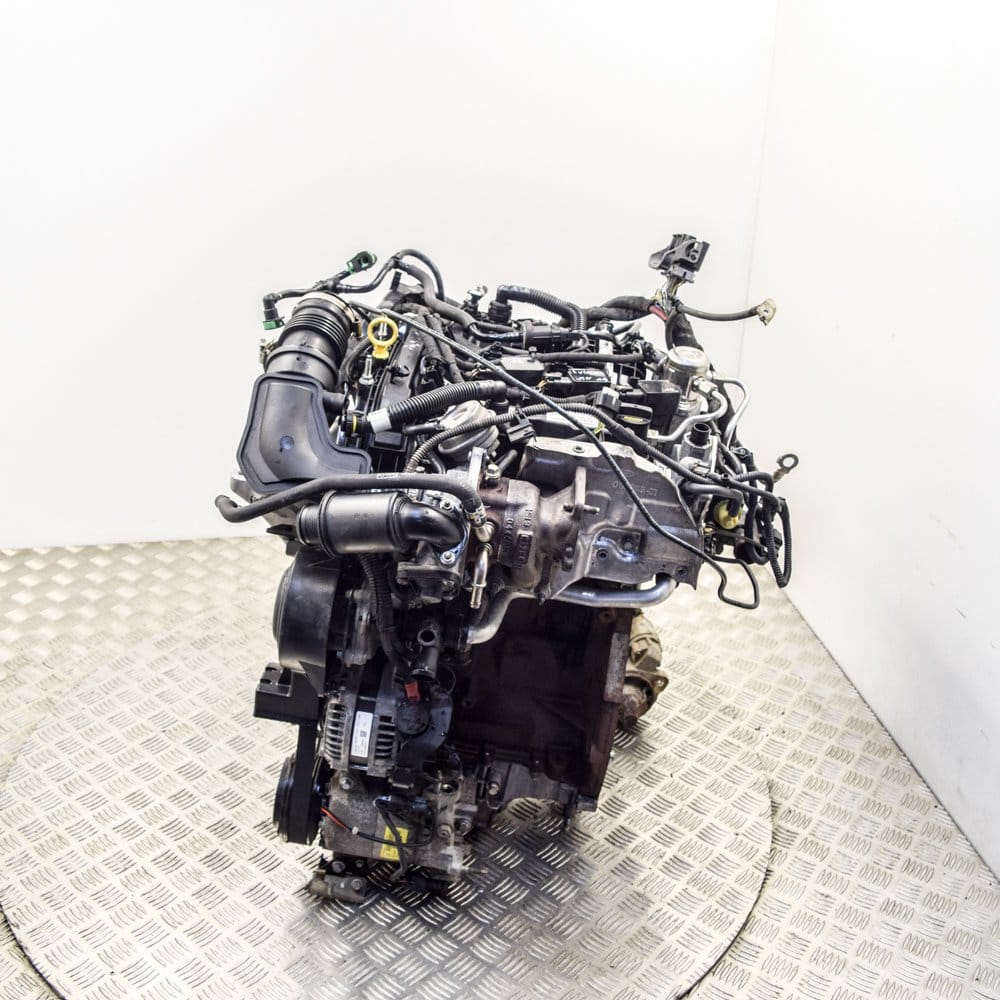Why Regular Maintenance of Your Ford Fiesta Engine Is Essential
Why Regular Maintenance of Your Ford Fiesta Engine Is Essential
Blog Article
The Future of Engines: Innovations Driving Sustainable Power Solutions
As the automotive industry navigates the important shift in the direction of sustainability, the future of engines is significantly specified by groundbreaking technologies. Electric engine advancements, alongside promising developments in hydrogen fuel cells and biofuels, are reshaping the landscape of power services.
Electric Engine Advancement
The development of electric engine advancements symbolizes a crucial shift in the vehicle and aerospace sectors, driven by the immediate demand for sustainable alternatives to fossil fuels. This shift is defined by substantial innovations in battery technology, power electronics, and electric motor style, which jointly enhance the efficiency and performance of electrical engines.
Current advancements have actually caused the development of lighter, a lot more energy-dense batteries, such as lithium-silicon and solid-state batteries, which guarantee longer varieties and shorter charging times. In addition, renovations in electrical motor effectiveness, such as making use of irreversible magnets and progressed cooling down systems, allow electric engines to run properly under differing problems. These enhancements not just enhance car performance yet likewise contribute to a decrease in total power intake.
Furthermore, the integration of advanced software application algorithms has actually optimized power management in electrical automobiles, enabling regenerative stopping and anticipating charging strategies. As makers increasingly welcome electric propulsion, the aerospace and automobile fields are experiencing a paradigm shift towards greener innovations. This evolution not only fulfills regulatory needs but additionally aligns with consumer preferences for eco-friendly transportation solutions, strengthening electric engines as a foundation of future sustainable wheelchair.
Developments in Biofuels
As the automotive and aerospace industries significantly prioritize lasting energy resources, developments in biofuels become a complementary service to electric engines. Biofuels, originated from natural materials such as crops, waste, and algae, present a cutting-edge method for lowering greenhouse gas discharges and reliance on fossil gas.
Current research has actually concentrated on improving the efficiency and sustainability of biofuel manufacturing. Second-generation biofuels make use of non-food feedstocks, minimizing competitors with food supply and minimizing ecological effect. Furthermore, advancements in artificial biology have actually made it possible for the engineering of microorganisms to create biofuels better, causing greater yields and lower production costs.
Additionally, the advancement of drop-in biofuels enables smooth combination right into existing framework, allowing a smoother shift for sectors generally based on nonrenewable fuel sources. ford fiesta engine. These gas can be made use of in current engines without modifications, facilitating their fostering across various sectors
Investments in biofuel modern technology, in addition to helpful policies, are important to drive technology and scalability. As the worldwide community seeks to battle environment change, biofuels supply a practical, immediate remedy that lines up with the overarching goal of sustainability in transport and air travel.
Hydrogen Fuel Cell Modern Technology
A growing variety of researchers and firms are discovering hydrogen fuel cell modern technology as a feasible alternative to standard source of power in transport and energy systems. This innovation converts chemical energy from hydrogen into power with an electrochemical response, with water as the only by-product, making it an eco-friendly alternative.
The core of hydrogen fuel cells is the gas cell stack, where hydrogen molecules are divided into electrons and protons. The flow of electrons produces power, while protons move via a membrane to integrate with oxygen from the air, creating water. This process causes high efficiency and reduced emissions, placing hydrogen gas cells as an important player in the shift to lasting energy.
Considerable advancements have been made in boosting the sturdiness and efficiency of fuel cells, along with minimizing costs with ingenious production techniques. In addition, the development of hydrogen manufacturing approaches, such as electrolysis powered by sustainable power resources, improves the sustainability of the total system. As infrastructure for hydrogen refueling expands and production techniques come to be much more efficient, hydrogen fuel cell modern technology holds terrific promise for decarbonizing different sectors, including heavy-duty transportation and stationary power generation.
Hybrid Equipments and Their Impact
Crossbreed systems stand for a substantial evolution in sustainable engine technology, combining standard interior combustion engines with electric propulsion to maximize energy efficiency and reduce emissions (ford fiesta view publisher site engine). This twin technique enables find out here now cars to utilize both power resources, making it possible for higher versatility in energy intake and lowering dependence on nonrenewable fuel sources

In enhancement to environmental advantages, crossbreed systems provide customers a feasible transition in the direction of completely electric lorries. They minimize array stress and anxiety by integrating the ease of gas with the benefits of electrical propulsion, making them an attractive alternative for a wider target market.
The Duty of AI in Engine Style
Leveraging innovative algorithms and artificial intelligence techniques, the auto market is progressively incorporating fabricated intelligence (AI) into engine design processes. AI enhances the effectiveness and performance of layout by evaluating huge datasets to recognize optimal configurations and performance specifications. This ability permits designers to simulate various operating conditions and anticipate engine habits under several circumstances, significantly decreasing the time and expense connected with standard prototyping techniques.
In addition, AI promotes the growth of sophisticated materials and burning processes tailored for sustainability. By enhancing fuel effectiveness and reducing emissions, AI-driven designs align with global initiatives intended at lowering the carbon impact of auto engines. Artificial intelligence formulas can additionally forecast upkeep requirements, leading to enhanced dependability and longevity of engine components.
Moreover, AI is instrumental in the integration of electrification modern technologies, such as hybrid systems, where it can optimize battery management and energy healing procedures. As the sector moves towards more sustainable power services, the role of AI in engine style becomes significantly essential, driving innovation and boosting the performance of future engines. Ultimately, the cooperation between AI and engine layout advertises a new period of smarter, cleaner, and much more efficient auto innovations.

Conclusion
In conclusion, the future of engines is being shaped by a merging of cutting-edge modern technologies that focus on sustainability. Electric engine improvements, biofuel advancements, hydrogen fuel cells, and hybrid systems jointly add to a considerable reduction in emissions next and ecological influence.
Electric engine improvements, together with promising growths in hydrogen gas cells and biofuels, are reshaping the landscape of power solutions. In addition, renovations in electric motor efficiency, such as the usage of long-term magnets and advanced cooling systems, make it possible for electrical engines to operate effectively under differing conditions. By optimizing gas effectiveness and lessening emissions, AI-driven layouts straighten with worldwide initiatives intended at decreasing the carbon footprint of auto engines. As the market relocates towards more lasting power options, the function of AI in engine design comes to be progressively vital, driving advancement and enhancing the efficiency of future engines. Electric engine developments, biofuel growths, hydrogen fuel cells, and crossbreed systems collectively add to a significant decrease in emissions and ecological influence.
Report this page